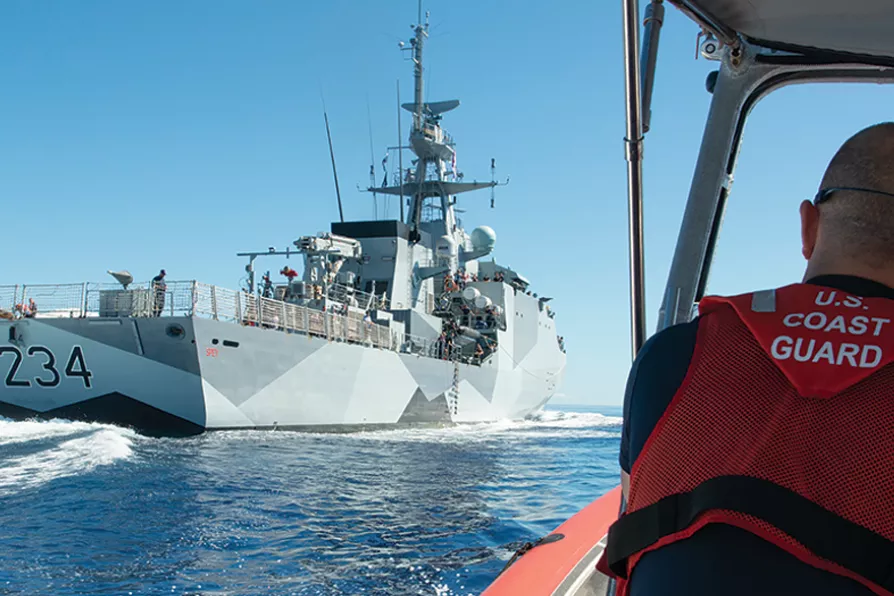Marco Rubio views 1945 as a defeat for the West, wants to revise the post-war order, while German ministers lead the standing ovation. SEVIM DAGDELEN reports

 AT THE READY: Crew members from the US Coast Guard Cutter Joseph Gerczak and Royal Navy HMS Spey conduct law enforcement training off Honolulu
[US Coast Guard/CC]
AT THE READY: Crew members from the US Coast Guard Cutter Joseph Gerczak and Royal Navy HMS Spey conduct law enforcement training off Honolulu
[US Coast Guard/CC]
DAVID LAMMY praises Ernest Bevin for his key role in the early years of the cold war.
He says that Bevin: “brought us the Nato alliance that is still the bedrock of our security and fought for a nuclear bomb as he put it with the Union Jack on top. A deterrent that remains a key element of Britain’s foreign and security policy today.”
The reality, of course, is that Britain’s “independent” nuclear forces are almost entirely dependent on the Stars and Stripes rather than the “Butcher’s Apron,” and Nato’s military command structure, rather than its toothless political one, has been under continued US control since 1949.

From 35,000 troops in Talisman Sabre war games to HMS Spey provocations in the Taiwan Strait, Labour continues Tory militarisation — all while claiming to uphold ‘one China’ diplomatic agreements from 1972, reports KENNY COYLE

In the first half of a two-part article, PETER MERTENS looks at how Nato’s €800 billion ‘Readiness 2030’ plan serves Washington’s pivot to the Pacific, forcing Europeans to dismantle social security and slash pensions to fund it











